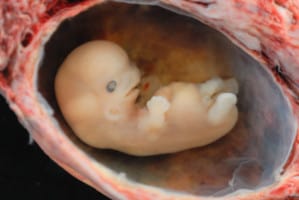
To purchase the entire DVD set of the Summit Lecture Series, visit summit.org.
There’s a rule in debate that says: Whomever frames the argument almost always wins the argument.
If the debate is framed around the question, “What is the unborn”, then a pro-life position holder is in the driver’s seat. But, if the debate is about choice, privacy, or trusting women, the pro-lifer will lose.
So, if someone asks, “Why don’t you pro-lifers trust women to make their own personal decisions?” Then the most effective approach is to consider a toddler and respond in this fashion:
“Imagine I have a two-year-old here. His parents want the right to do whatever they want with him and think we should trust them to do what they deem appropriate, even if that means roughing him up. Should we trust these parents to do whatever they want with their toddler? Of course not! But, why not?… Because the toddler is a human being. Ahhhh… if the unborn are human beings, like this two-year-old, then we shouldn’t be harming the unborn in the name of trusting people to make their own decisions in the name of privacy – not any more than we would allow someone to kill a toddler for that reason.”
Then, they may answer, “But that’s not the same. The unborn aren’t human and the toddler is.”
And THAT’S the issue: Are the unborn human?
We have to answer the question “What is the unborn?” before we can address the question “Can we kill the unborn?”
If someone asks, “But what about a poverty-stricken woman who can’t afford a child?” Bring out the toddler analogy again and ask if it would be okay to kill a two-year-old if it helps his parents balance their budget at the end of the month.
Whenever someone asks if it would be prudent, wise, in the best interest for a pregnant woman to bring another child into the world, they inherently assume that she doesn’t already have a child. The pro-life position inherently assumes that she already has a child – in her uterus. The only question is: What is she going to do with the child?
Now, in answering the question “What is the unborn?”, you don’t need to go to the Bible for support, nor philosophy, nor any great Christian teachings. You simply need to turn to the Science of Embryology.
The Science of Embryology teaches us that from the earliest stages of development, each person is a distinct, living, and whole human being. This isn’t to say that every single cell (skin cells, hair cells, etc.) in our body is a distinct, living, and whole human being – even though each one contains all of a person’s DNA. Each single cell, although they are part of a unique human being, they are not distinct, whole human beings. Not the way each person is when we are in the embryonic stage, according to Embryonic Science.
There is a difference, in kind, between each of our body cells and the embryonic human beings we once were.